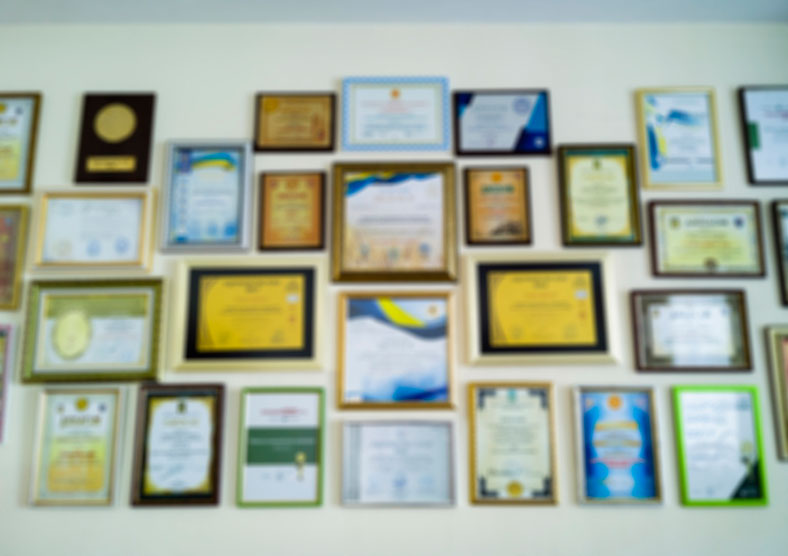Edited by Alyssa Middleton

In many states, all social workers need to apply for a state-issued license before they’re allowed to work. California is a little bit different.
According to the California Chapter of the National Association of Social Workers (NASW), only one type of social worker needs a license to practice in the state — the clinical social worker, also referred to as a Licensed Clinical Social Worker (LCSW). Social workers who don’t provide clinical services don’t need licenses.
However, LCSWs are some of the most versatile and in-demand professionals in the field. So while earning a social work license in California is optional in many cases, it can be a great way to hone your skills, learn how to help more people, and secure more advanced jobs in California’s massive social work community. But why are LCSWs so highly regarded and what requirements do you need to fulfill to earn this coveted California social work license?
What Is an LCSW?
An LCSW is a highly-trained social worker who can provide clinical and therapeutic services to individuals, families, and groups. In California, other types of social workers can aid in this process, but there are a few things only an LCSW is legally allowed to do.

Unlike unlicensed social workers, LCSWs in California can do the following:
Diagnose mental health disorders
LCSWs are licensed mental health practitioners. This means they can provide clinical diagnoses for depression, anxiety, PTSD, and other mental health issues. For clients, a clinical diagnosis can provide a sense of personal understanding and allow them to seek insurance-backed treatments from a number of other professionals.
Provide advanced clinical treatment for mental health disorders
LCSWs are trained in a variety of psychotherapeutic techniques like cognitive-behavioral therapy, psychodynamic therapy, family therapy, and more. They can tailor their approach to best meet the needs of their clients. But while LCSWs may understand how therapeutic medications work, the California Health and Safety Code doesn’t allow them to prescribe them.
Operate independently and open their own offices
According to the California Board of Behavioral Sciences (BBS), social workers can only open private practices after earning their full license. In many cases, LCSWs are also the only social workers who can bill clients or insurance providers directly.
Armed with the knowledge to carry out these vital responsibilities, a person who holds a California social work license can become a skilled member of any organization’s mental health support team.
Mental Health Services Are Crucial to Social Work
Earning a California social work license and becoming an LCSW can certainly help you increase your job prospects. But perhaps most importantly, it can position you as a key player in your clients’ struggles with mental health. Unfortunately, these struggles are more prevalent than ever before.
For instance, around 38% of adults battling substance abuse also have mental health disorders. And between 2010 and 2019, suicidal behavior in the nation’s high schoolers increased by over 40%. So whether you work in a school, a senior center, or anywhere in between, many of the people you serve are likely to struggle with mental health. As an LCSW, you can be the frontline service provider they so desperately need.
Licensed Social Worker Requirements in California
Because LCSWs have such complex responsibilities, California social work license requirements are pretty rigorous. The agency in charge of overseeing and enforcing these requirements is the California Board of Behavioral Science (BBS). Fortunately, the BBS’s requirements for clinical social work licensure are fairly straightforward.
LCSWs Must Have Master’s Degrees and Complete Specific Types of Courses
Before seeking licensure, potential LCSWs in California must have a Master’s in Social Work (MSW) from a school accredited by the Council on Social Work Education (CSWE). Many MSW programs in California offer degree tracks designed specifically for people who want to become LCSWs.
But on top of that, the BBS requires potential LCSWs to take courses covering specific topics:
- California ethics and laws
- Suicide risk and prevention
- Providing mental health services through telehealth systems
- Assessing and reporting child abuse
- Human sexuality
- Substance abuse
- Senior abuse and long-term elder care
- Domestic abuse detection, assessment, and intervention
These courses can be taken while earning your MSW or through an accredited program. Many must be focused on these topics as they pertain to California laws and social service policies.
Future LCSWs Must Register as Associate Clinical Social Workers First
After earning an MSW, future LCSWs must apply to become Associate Clinical Social Workers (ASWs). ASWs have been approved by the BBS to begin the formal licensing process.
To become an ASW, you must:
- Submit school transcripts and proof that you’ve completed the required courses
- Complete Live Scan fingerprinting no more than 60 days before submitting your ASW application
- Pay a $150 evaluation fee
These materials can be submitted to the BBS with a completed application. Applicants will also have to pass background checks conducted by the FBI and the Department of Justice. ASW registration must be renewed every year. This training license has a six-year limit.
Gaining Experience: LCSW Supervision and Fieldwork Requirements in California
Once you’ve successfully been accepted as an ASW, it’s time to gain experience under the supervision of a practicing, BBS-approved LCSW.
According to the BBS, ASWs must complete 3,000 hours of supervised work experience over the course of a 104-week period (about two years). They must also meet with their supervisors weekly.

A minimum of 2,000 hours must be dedicated to providing clinical social work services like diagnosis, assessment, treatment, or psychotherapy. 750 of these hours must be dedicated to providing face-to-face psychotherapy. These activities can be provided to either groups or individuals.
No more than 1,000 hours can be dedicated to providing nonclinical services like advocacy, research, and consultation or attending workshops and seminars.
The 90 Day Rule: Lowering Experience Requirements
If the BBS receives your Associate Clinical Social Worker application within 90 days of graduation, some of the fieldwork hours you completed while earning your MSW may count towards your 3,000-hour post-degree experience requirement. However, students must have already completed Live Scan fingerprinting for these hours to qualify.
ASWs Must Pass the California Law and Ethics Exam
To maintain your status as an ASW, you must take the California Law and Ethics Exam at least once a year until you pass. If you don’t pass, you may retake the exam after 90 days. Once you pass, you don’t have to take it again.
There are actually separate exams for each type of professional the BBS regulates, but the exam for social workers includes six sections:
- Confidentiality, Privilege, and Consent
- Mandated Reporting and Limits to Confidentiality
- Legal Standards for Professional Practice
- Professional Competence and Integrity
- Responsibility to Clients and Social Work Relationships
Practice Policies and Professional ResponsibilitiesThe exam is administered through Pearson Vue, an educational testing service with almost 30 test centers across the state. Many testing centers are open three to four days a week. The fee for the first test and each subsequent attempt is $150.
With All These Requirements Completed, ASWs Can Take the ASWB Clinical Exam
One of the final steps of earning a California social work license is passing the final exam. But like many other states, California doesn’t have its own specific test. Instead, they administer a test created by the Association of Social Work Boards (ASWB).
The ASWB is a national organization made up of every state’s social work licensing board and social work colleges across the country. They design exams for almost every kind of social worker. But since California social work license regulations typically only apply to clinical social workers, the BBS only requires applicants to take the Clinical Exam.
The ASWB’s Clinical Exam consists of four sections made up of multiple subsections, each designed to ensure applicants are ready for clinical practice:
1. Human Development, Diversity, and Behavior in the Environment
- Human Growth and Development
- Human Behavior in the Social Environment
- Diversity and Discrimination
2. Assessment, Diagnosis and Treatment Planning
- Biopsychosocial History and Collateral Data
- Assessment and Diagnosis
- Treatment Planning
3. Psychotherapy, Clinical Interventions, and Case Management
- Therapeutic Relationships
- Interventions
- Service Delivery and Case Management
- Consultation and Collaboration
4. Professional Values and Ethics
- Values and Ethical Challenges
- Confidentiality
- Professional Development
According to the ASWB’s Exam handbook, all tests consist of 170 multiple choice questions. 20 are experimental questions that don’t count towards test-takers’ scores. The time limit for the Clinical Exam is four hours. Like the Ethics Exam, this exam is administered by Pearson VUE at one of their testing centers. Registration is $260.
To be eligible for the exam, ASWs must complete all prior requirements and submit an Application for Licensure form and a $250 fee to the BBS.
Initial Licensure Requirements and Maintaining Your Status as an LCSW
Once you’ve met all of these requirements, you’re eligible to apply for initial licensure. This requires submitting the Request for Initial Licensure application (online or by mail) and a $200 fee to the BBS. Application processing often takes about 30 working days.
LCSWS must apply to renew their license every two years and pay a $220 fee. In those two years, they must complete 36 hours of continuing education (CE) courses. Courses can be completed online. Six hours must be in law and ethics. LCSWs must also take one-time courses in suicide risk assessment and intervention and telehealth. Before their first renewal, new licensees must complete seven hours of continuing education related to HIV/AIDS, seven hours of child abuse assessment and reporting, and 15 hours related to alcoholism and other chemical substance dependency.
The BBS accepts CE courses provided by accredited schools and approved organizations like the California Society for Clinical Social Work and the National Association of Social Workers. LCSWs can also earn CE hours by teaching for a BBS-approved CE provider, conducting case reviews for the BBS, developing BBS exams, serving on professional ethics committees, and completing occupational surveys administered by the BBS.
A Note on California LCSW Reciprocity
License reciprocity has become increasingly important for social workers across the country. If you earned a clinical social work license in another state, the BBS says you can become an LCSW in California if you meet four main requirements:
- Had a clinical social work license in another state for two years or more.
- Obtained your home state’s highest license for independent clinical social work.
- Held a current, unrestricted LCSW license for at least two years.
- Have a Master’s degree from a CSWE-accredited school.
But given stringent LCSW requirements in California, even the most experienced out-of-state applicants may have to pass the California Ethics Exam, gain additional fieldwork hours, or take more classes to qualify for full licensure.
Learn More About Becoming an LCSW in California
LCSW requirements in California may seem intimidating, but after earning full licensure, you could very well become the knowledgeable, compassionate professional so many of the state’s most vulnerable people need. You might take your talents to a skilled nursing community and help seniors grapple with the harsh realities of aging. Maybe you’ll help those battling substance abuse find hope through research-backed mental health services. No matter what social work specialty calls to you, there’s a clinically-focused MSW program in California that can give you the knowledge and experience you need to make a difference.



